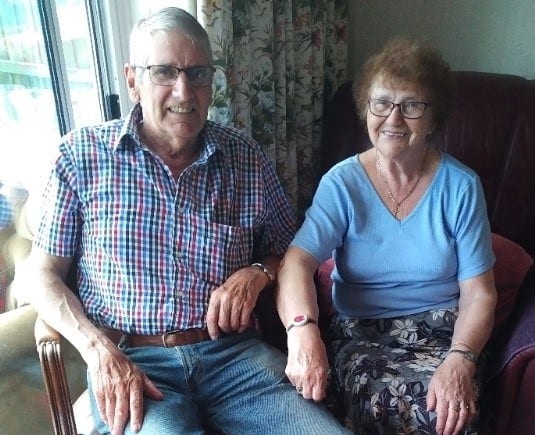Earlier this year, Helga Wynne visited the IBCC. When staff heard her story, they persuaded her to be interviewed for the IBCC Digital Archive.
Helga was born in 1926 in Kiel, Germany. At age 14, she started work on a farm, but an accident left her with severe injuries. After months of recovery, she became a student nurse at a children’s hospital in Kiel. During an air raid, she was buried in rubble and survived only because of the determined efforts of fellow students to dig her out.
She became engaged to a German submariner in Kiel. The train on which they were travelling to his home in Westphalia for their marriage was strafed and her fiancé was killed. Of this tragedy, she remarked, ‘you just cope when you are young’.
In 1947, Helga met Harold Wynne, a British paramedic on national service, at a dance in Kiel. Harold brought her to live in the UK in 1948 and they were married in Burton upon Stather church, near Scunthorpe. Harold’s family adored her. Apart from being homesick at times, her life was very happy. Altogether she was mother to four sons and now has six great grandchildren.
Since Harold’s death in 2000, his lifelong friend Graham Atkinson has been Helga’s companion. Gordon remembers standing outside during the war to watch the bomber streams departing, and many limping home on less than four engines. One of his relatives, Arthur Leslie Horton, served in the RCAF at RAF Linton-on-Ouse and was killed in action in 1944.
Both Gordon and Helga were deeply moved by the exhibition at the IBCC – ‘it brought back many memories’, said Helga. Their story seems a living embodiment of the IBCC’s values: as Helga noted, ‘no matter what country you came from, all these young men had mothers’.

